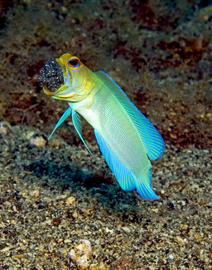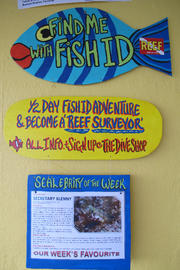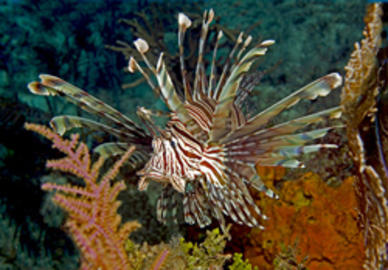Thanks to everyone who donated during our Summer Campaign, you helped us reach our goal. REEF members contributed over $34,770, with a generous match of $30,000 from the Curtis and Edith Munson Foundation, for a grand total of $64,770. REEF will use these donations to maintain our current programs and expand our special projects, the Grouper Moon Project and the Lionfish Research Program. Donations from our members make it possible for REEF to carry out our mission of conserving marine ecosystems. Thank you!
REEF members are at the heart of our grassroots marine conservation programs. Over 43,000 divers, snorkelers, students, and armchair naturalists stand behind our mission.
This month we highlight Jim Pendergrass (REEF member since 2008). To date, Jim has conducted 113 surveys along the west coast from California to British Columbia, and he is a member of the Pacific Advanced Assessment Team. Here's what Jim had to say about REEF:
REEF is proud to partner with over 130 dive shops, dive clubs, individuals, and other organizations as REEF Field Stations.
When you call the REEF office, you may be greeted with a new voice. Please join us in welcoming Martha Klitzkie as the new General Manager. After completing a Bachelor of Arts from Warren Wilson College, a passion for marine education led her to serve as the Education Director at the Pigeon Key Foundation in Marathon, Florida. She later went on to direct a larger marine education program based at Camp Ocean Pines, located on the central coast of California. During this time she also completed a Master of Arts in Educational Leadership and Administration from Argosy University.
Some call them webinars. We call 'em Fishinars!
Fishie fun in the comfort of your own home. Great for first-timers or those wanting a review. These short, free webinars will teach you the finer points of identifying fish and invertebrates underwater.
Take a vacation that counts by participating in REEF's volunteer surveys!
Divers successfully removed 675 invasive lionfish from Florida Keys waters on August 20, during the upper Florida Keys derby of the Second Annual Florida Keys Lionfish Derby Series in Key Largo, Fla., organized by Reef Environmental Education Foundation (REEF) and the FL Keys National Marine Sanctuary (FKNMS).
Lad Akins, REEF Director of Special Projects, recently co-authored a paper summarizing work documenting feeding patterns of lionfish in the Bahamas. Understanding the predation behavior of this invasive species is important to be able to predict and mitigate the effects of Indo-Pacific lionfish (Pterois volitans) on Caribbean fish communities. Lad and his colleagues at Simon Frasier University studied the activity levels and prey consumption rates of lionfish on 12 shallow coral reefs in the Bahamas in relation to time of day and prey availability.





